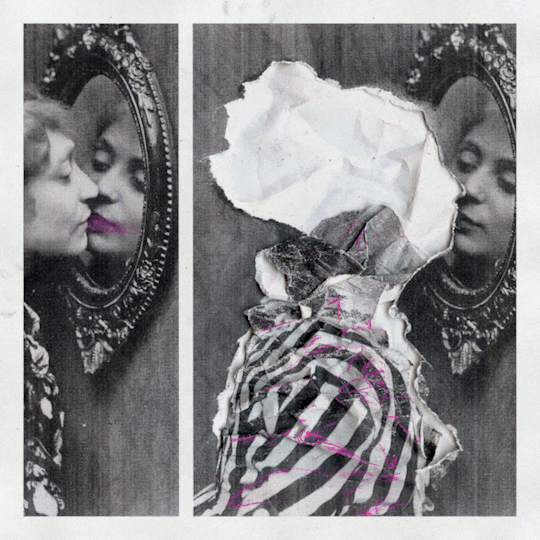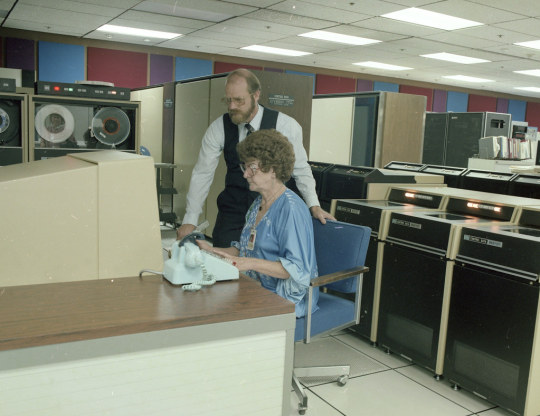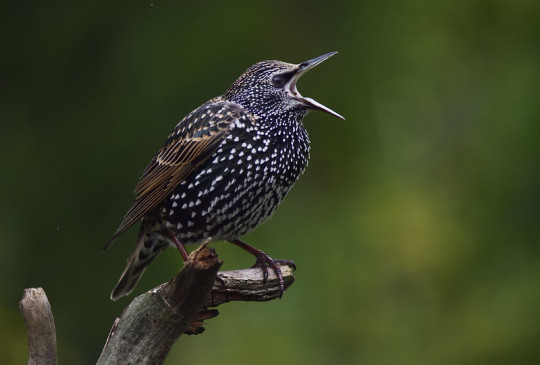#flickr commons
Text

{2023} µ-Rhythmus
3d scanned version here: https://teia.art/objkt/842061
#gif#animation#artists on tumblr#art#anna malina#paper collage#pink#collage animation#generative fill#photoshop#2023#mirrors#laser prints#3d scan#flickr commons#public domain photo#pastels
210 notes
·
View notes
Photo

Two young boys on an Ariel motorbike, National Park, Sydney, 1940
8 notes
·
View notes
Text
Happy birthday to the Flickr Foundation!
Happy birthday to the Flickr Foundation - the biggest, best archive of no-restriction, public domain photos on the web, with over 100 participating institutions, including the Library of Congress!

The Flickr Foundation is structured as a 501(c)3 nonprofit, with an ambitious, 100-year plan to catalog, safeguard, and make available a vast trove of images that belong to all of us.
They are taking the "access" part seriously - making sure that the competing priorities of "getting and storing everything" and "letting everyone use everything" don't come down on the side of a vast, musty archive that no one sees - and no one defends when it's on the chopping block.

You can already search Flickr for millions of CC images, but these come with strings attached, requirements for attribution and follow-on licensing. The Commons, on the other hand, is entirely free to use. Search for yourself!

449 notes
·
View notes
Photo

Bishop’s Cap Cactus by Jose Nicdao on Flickr.
This work is licensed under CC BY 2.0.
#bishop's cap cactus#bishop's cap#astrophytum myriostigma#cactus#cacti#houseplants#plants#plant blog#succulent#succulents#creative commons#creativecommonsplants#curators on tumblr#green#foliage#flowers#portrait#cultivated#flickr#plant photography
345 notes
·
View notes
Video
Breaching Humpback Whale (Megaptera novaeangliae) by Gregory "Slobirdr" Smith
Via Flickr:
On this summer's trip to Alaska, we were again fortunate enough to have calm seas and clear weather out of Seward on a Kenai Fjords tour.
#Humpback Whale (Megaptera novaeangliae)#whale#breaching#Common Murre and Humpback Whale#Kenai Fjords National Park#Northwestern Glacier#marine mammal#nature#wildlife#flickr
48 notes
·
View notes
Video
No zoom by European Space Agency
Via Flickr:
This image shows a globular cluster known as NGC 1651. Like the object in another recent Picture of the Week, it is located about 162 000 light-years away in the largest and brightest of the Milky Way’s satellite galaxies, the Large Magellanic Cloud (LMC). A notable feature of this image is that the globular cluster almost fills the entire image, even though globular clusters are only about 10 to 300 light-years in diameter (NGC 1651 has a diameter of roughly 120 light-years). In contrast, there are numerous Hubble Pictures of the Week that feature entire galaxies — which can be tens or hundreds of millions of light-years in diameter — that also more or less fill the whole image. A common misconception is that Hubble and other large telescopes manage to observe wildly differently sized celestial objects by zooming in on them, as one would with a specialised camera here on Earth. However, whilst small telescopes might have the option to zoom in and out to a certain extent, large telescopes do not. Each telescope’s instrument has a fixed ‘field of view’ (the size of the region of sky that it can observe in a single observation). For example, the ultraviolet/visible light channel of Hubble’s Wide Field Camera 3 (WFC3), the channel and instrument that were used to collect the data used in this image, has a field of view roughly one twelfth the diameter of the Moon as seen from Earth. Whenever WFC3 makes an observation, that is the size of the region of sky that it can observe. The reason that Hubble can observe objects of such wildly different sizes is two-fold. Firstly, the distance to an object will determine how big it appears to be from Earth, so entire galaxies that are relatively far away might take up the same amount of space in the sky as a globular cluster like NGC 1651 that is relatively close by. In fact, there's a distant spiral galaxy lurking in this image, directly left of the cluster — though undoubtedly much larger than this star cluster, it appears small enough here to blend in with foreground stars! Secondly, multiple images spanning different parts of the sky can be mosaiced together to create single images of objects that are too big for Hubble’s field of view. This is a very complex task and is not typically done for Pictures of the Week, but it has been done for some of Hubble’s most iconic images. [Image Description: A spherical collection of stars, which fills the whole view. The stars merge into a bright, bluish core in the centre, and form a sparse band around that out to the edges of the image. A few stars lie in front of the cluster, with visible diffraction spikes. The background is dark black.] Credits: ESA/Hubble & NASA, L. Girardi, F. Niederhofer; CC BY 4.0
#NGC 1651#ESA#European Space Agency#Space#Universe#Cosmos#Space Science#Science#Space Technology#Tech#Technology#HST#Hubble Space Telescope#Galaxy#Supernova#NASA#Creative Commons#Stars#Star#Globular Cluster#flickr
20 notes
·
View notes
Text

Etourneau sansonnet
Common Starling - Sturnus vulgaris
Photographer: Didier Ferrand
#didier ferrand#photographer#flickr#common starling#sturnus vulgaris#etourneau sansonnet#nature#bird photography
20 notes
·
View notes
Note
Even though you're crediting the pics, it's still considered copyright infringement hence the all rights reserved on the artists' site aka the artist doesn't wish his artwork to be shared, redistributed, copied, republished in any way. This makes me wonder how come you don't have any tumblr strikes yet? because there's clearly copyright violation.
Bro mind your own business? Like why do you even fucking care you sound like a literal child 😂 most artists I’m sharing also don’t mind because 1. I’m not making money off of it 2. It’s exposure for their work. If the artist ever states they don’t want their work reposted or shared I don’t.
I’ve had several photographers reach out to me and thank me for sharing or be like “someone told me you’re sharing me my work thank you”…..which makes me think that you freaks are snitching on me which is so deeply embarrassing and sad. Go cry to blogs that have never credited a single post in their life!!!
Unless you are the owner of the photos I’m sharing kindly fuck off
#like what artist sites are you even fucking talking about#everything I post from flickr was marked as all Creative Commons and is downloadable#answered x
94 notes
·
View notes
Text

Nothing Gold Can Stay
Nature's first green is gold,
Her hardest hue to hold,
Her early leaf's a flower;
But only so an hour.
Then leaf subsides to leaf.
So Eden sank to grief,
So dawn goes down to day.
Nothing gold can stay.
by Robert Frost
49 notes
·
View notes
Text

9 notes
·
View notes
Video
IMG_0025 by Henry
Via Flickr:
Great blue heron
#Bird#Birds#Canon#Nature#Great Blue Heron#Mallard#Black crown night heron#American pekin#Cormorant#Common pochard#flickr
7 notes
·
View notes
Video
Postcrossing US-10260572 by Gail Anderson
Via Flickr:
Postcard with a photo of Boston Common in the autumn. Boston Common is a 48 acre property in the heart of Boston, Massachusetts. This is the oldest public park in the United States. Sent to a Postcrossing member in Australia.
#Autumn#Autumn Colors#Fall#Trees#Boston#Massachusetts#Boston Common#Historic#Park#Leaves#Colorful#United States#Postcard#POstcrossing#flickr
3 notes
·
View notes
Video
Common Golden Eye ( Female ) by Kip Hutchison
Via Flickr:
Hit Z to view larger image,
#Golden Eye#Common Goldeneye#Barrows#Goldeneye#Ducks#Duck#Water Birds#Water Bird#Ocean Birds#Ocean Duck#Ocean Ducks#VancouverIslandBirds#Vancouver:Island#Wildlife#British Columbia#Birds.#flickr
3 notes
·
View notes
Text
Flickr to copyleft trolls: drop dead

Today’s a big day for users of Creative Commons images: Flickr has declared zero tolerance for copyleft trolls, predators who exploit a bug in out-of-date versions of the CC licenses in order to threaten good-faith users of CC images who make minor errors in the way they credit the images.
If you’d like an essay-formatted version of this post to read or share, here’s a link to it on pluralistic.net, my surveillance-free, ad-free, tracker-free blog:
https://pluralistic.net/2023/04/01/pixsynnussija#pilkunnussija
First things first: Flickr’s new community guidelines prohibit copyleft trolling: “Failure to allow a good faith reuser the opportunity to correct errors is against the intent of the license and not in line with the values of our community, and can result in your account being removed.”
https://www.flickr.com/help/guidelines
If you are targeted by a copyleft troll who demands that you pay them because of minor errors in your Creative Commons attribution, here’s how to report them and get them kicked off Flickr forever:
https://www.flickrhelp.com/hc/en-us/articles/4404057906068-How-to-report-Community-Guidelines-violations
Now, some background. Early versions of the Creative Commons licenses have a bug, a clause that says that the permissions conferred by CC licenses “terminate automatically upon any breach” — that is, if you violate any term of the license, it ceases to be in effect:
https://doctorow.medium.com/a-bug-in-early-creative-commons-licenses-has-enabled-a-new-breed-of-superpredator-5f6360713299
Core to the CC licenses is the idea of attribution. When you use a Creative Commons image, you must name the creator and link to the original, and name the license and link to it. Many CC users don’t understand this; they use an image and add something like “Image: Cory Doctorow/Creative Commons” with no links or specific licenses.
Under the pre-4.0 versions of the license, this can be construed as a “breach” which “terminates” the CC license. That’s where the copyleft trolls come in.
Copyleft trolls post CC-licensed stock art and then wait for a naive person to make a minor attribution error, and then they pounce, sending a legal threat and a speculative invoice demanding hundreds or thousands of dollars, under the threat of a $150,000 statutory damages award.
This is deeply unethical conduct. As I wrote when I was targeted by one of these creeps:
If you put a CC license on your work, its explicit message is, “I want you to re-use this.” Not “I am a pedantic asshole with a fetish for well-formed attribution strings.” The point of CC is not to teach the world to write attribution strings: it is to facilitate sharing and re-use. If you are a good-faith user of CC licenses, then your response to an incorrect attribution string should be a request to correct it, not a threat to sue for $150,000 in statutory damages.
Unethical as this conduct is, it’s also big business. One company, Pixsy, is responsible for a long-running shakedown campaign, working with scammy photographers to send out demand letters to unsuspecting Creative Commons users.
And many of those photographers rely on Flickr to bait their traps.
There’s a reason for this. Flickr’s early years were a period of enormous innovation. Flickr was the first mobile photo-sharing site, and it invented numerous community features that turned it into a thriving hub for photographers, amateur and professional alike. Flickr was also an interoperability pioneer, offering an API that let any user move their photos to a rival service — a tacit pledge to keep your business by being better than the rest, not by locking you in.
I know all this because I was an early advisor to Flickr, and because, in a weird way, I am partially responsible for Flickr. You see, before Flickr, I was carrying on a long-distance relationship from San Francisco with a woman in London, and we were both alpha testers for a social game called GameNeverending.
One day over breakfast with GNE’s founder Stewart Butterfield, he asked me how things were going in my romantic life. I answered that things were great, but mentioned that my girlfriend and I were struggling to share the pictures we took in our daily lives with one another. Stewart said, “Well, there’s a photo-sharing feature for GNE on the roadmap — why don’t I bump it up and we’ll see if other people use it, too?”
They did. In fact, the feature was so popular that within a few months, GNE relaunched as Flickr, jettisoning the game entirely and focusing on just that one feature. I stayed on the advisory, and one of the things I encouraged was the plan to roll out Creative Commons licenses for Flickr images — and I made sure everyone knew about it when Flickr became the first CC-enabled image site.
(I also married the woman I was carrying on that long-distance relationship with and today we have a 15 year old daughter!)
But after Flickr was sold to Yahoo, it joined Yahoo’s haunted armada of Web 2.0 ghost-ships, tossed back and forth in the storms created by the dueling princelings of Yahoo’s bloated management layer, who spent more time sabotaging one another than they did making anything anyone else wanted to use. Yahoo eventually sold off all of those holdings at fire-sale prices to Verizon, who neglected them still further.
An abandoned ship is easy picking for the rats that live in its bilges. Pixsy and its photographers actually became official Flickr partners, pitching themselves as a way for photographers who didn’t want their images shared to hunt down infringers — even as they facilitated a revolting campaign of copyleft trolling that depended on Flickr as their base of operations.
The depravity of copyleft trolls is truly boundless. Take Marco Verch, a prolific copyleft troll who hosts nearly 47,000 photos on Flickr. Verch hires low-waged gig work photographers through platforms like Upwork to take photos, then harasses people who make minor attribution errors:
https://www.computerweekly.com/news/252488167/Automated-image-recognition-How-using-free-photos-on-the-internet-can-lead-to-lawsuits-and-fines
Verch boasts that his predation lets him work for four hours a week, leaving him with ample time to focus on his hobby, running. Verch is a truly prolific predator, and his attacks have made untold numbers of victims miserable — including the small Dutch charity that was forced to shut down after paying his ransom demand. Pixsy has been Verch’s US counsel and filed dozens of suits on his behalf.
Back in 2021, I got hit by Pixsy on behalf of a photographer named Nenad Stojkovic, with a claim that I had failed to attribute his image correctly. The email threat was truly vicious, calculated to strike terror into the recipient’s heart and prompt swift payment of $600, for using a freely licensed image whose market value had been set by its creator at $0.00.
There was just one problem: I hadn’t flubbed the attribution string. I helped with the launch of Creative Commons. I was CC’s first European director. What’s more, I have decades of experience fighting bullies and trolls and I knew their threat was bullshit — no court would award them the damages they were seeking.
So I wrote about it, publishing the text of my correspondence with Pixsy’s staff and management, and calling on Flickr to make changes to prevent their tools from being abused to victimize innocent people, like forcing users with CC 2.0-licensed images to relicense them as CC 4.0, which guarantees users the right to 30 days to fix attribution strings.
The reason I thought Flickr might take this in hand is that it is finally under decent, responsive leadership — since 2018, Flickr has been owned by Smugmug, a family-owned business that really cares about photographers and the open internet.
Flickr hasn’t taken all of my suggestions yet — my understanding is that they are laboring under enormous technological debt thanks to years of neglect by Yahoo and Verizon, and even small changes require weeks of all-hands technological work.
But what they have done is modify their policies to create a de facto CC 4.0 environment for their users, by promising to terminate the accounts of any user who repeatedly threatens legal action over bad attribution strings without first offering a 30-day grace period.
Flickr’s done more than that, actually. For one thing, they ditched Pixsy, severing their relationship with the company (Pixsy still lists them on its “partner” page). They also created the Flickr Foundation, a nonprofit devoted to providing long-term, responsible stewardship for their CC and public domain image respositories:
https://www.flickr.org/
For its part, Creative Commons published an excellent “Statement of Enforcement Principles” for its licenses that unequivocally rejected the way that Pixsy and other copyleft trolls abuse the bug in its older licenses:
https://creativecommons.org/license-enforcement/enforcement-principles/
In the months since I published my article detailing Pixsy’s attempt to shake me down, two things happened. First, I got a legal threat from Kain Jones, Pixsy’s CEO, who demanded that I get on the phone with him, the the alternative being “escalating things legally”:
https://doctorow.medium.com/an-open-letter-to-pixsy-ceo-kain-jones-who-keeps-sending-me-legal-threats-5dfc54558f2c
Jones also falsely claimed that naming the employees who’d threatened me violated the GDPR, which is extremely on-brand for this whole mess. While I don’t claim to be the world’s greatest expert on GDPR, I did lobby in Brussels for it, and I do have German specialist lawyers on tap who are happy to explain that Jones’s threat is absolute nonsense.
As I noted in my followup to Jones, he seems incapable of interacting with the public or his critics without making legal threats — and not just any legal threats, but legal threats that are grounded in an unhinged, and, in my opinion, deliberately deceptive theories of the law.
Pixsy continued to rattle its sabers for a while after this, tweeting that I’d made errors in my description of its business operations but declining to correct those records in response to my and others’ requests for further detail. It is my opinion that Pixsy failed to correct the record because my accusations were and are substantively correct.
But even after I stopped hearing from Pixsy, I continued to hear from its victims. I routinely receive distraught emails from everyday people who thought they were doing the right thing by using Creative Commons-licensed images in their work, and who now face a remorseless onslaught of threats from Pixsy’s team. Some of these people have been targeted on behalf of Nenad Stojkovic, just as I was.
These people beg me for advice — will Pixsy sue? Can they ignore Pixsy’s demands? I give them my condolences and tell them that I can’t promise them that a company as vindictive, greedy and morally bankrupt as Pixsy won’t bring a lawsuit. Every time, I wish I could offer them more.
Well, now I can: if you are targeted by a copyleft troll for using a Flickr-hosted image, narc them the fuck out. Tell Flickr about them. Flickr no longer tolerates copyleft trolling, and they will terminate repeat offenders’ accounts.
As I wrote this today, I went back and revisted Pixsy CEO Kain Jones’s letter to me and I was struck again by its absolute rank hypocrisy, the sheer sociopathic lack of self-awareness it displays. Jones presides over an empire of bulk legal threats, carefully drafted to frighten blameless people into sending him money they can’t afford and don’t owe. In this correspondence, his company tells its victims that they are liable “regardless of knowledge or intent.” Victims are told that correcting their error will not suffice, because it “does not resolve the period of unlicensed use.”
And yet, in this letter, Jones calls on me to show understanding because “people occasionally make mistakes.” He scolds me for my “vitriol” in my naming and shaming a senior executive who boasts on Pixsy’s website of having “overseen over 140,000 cases” — that is, who sent these outrageous letters to more than one hundred and forty thousand people and organizations.
Unlike Kain Jones, I am a working artist. I make my living from the sale of my creative works, not from tricking people who’ve made innocent, trivial legal errors into sending me hundreds or thousands of dollars. Unlike Marco Verch, I don’t pay anonymous randos small sums to create new works, slap my name on them, and then threaten blameless people in the name of defending artists’ rights.
And I sometimes have to police my copyrights. The world is full of quick-buck scammers who rip off my work, including my Creative Commons-licensed works, often with the assistance of some of the world’s largest corporations:
https://pluralistic.net/2022/07/25/can-you-hear-me-now/#acx-ripoff
These people are engaged in what Douglas Rushkoff calls “Going Meta.” They don’t do anything useful, but rather, they create a chokepoint between people who do useful things and people who want to pay for those things, and squatting there, collecting rent:
https://rushkoff.medium.com/going-meta-d42c6a09225e
This is the passive-income brainworm — a parasitic, end-stage capitalist hustle that cloaks itself in high-minded rhetoric even though it is the very lowest of bottom-feeders. Pixsy claims that it is primarily an artists’ defense tool, but the company conspicuously refused to tell me what share of its income comes from real copyright defense, and what share comes from copyleft trolling.
Whenever I think back on Kain Jones and his outrageous legal threats to me — first the one that falsely claimed I had violated a Creative Commons license, and then the one that insinuated that calling him out broke the law — the thing that outrages me most is his assertion that he is a defender of artists’ rights.
What an outrageous and grotesque claim that is. A man who presides over a powerful corporation that devotes its considerable energy to tormenting people who used Creative Commons licenses as they were intended to be used sends a legal threat to a working artist and he styles himself a champion of the arts? If I wrote that into one of my bestselling novels — which generate revenue by making people happy through artistic expression, and not by terrorizing people with deceptive and unethical legal threats — I’d be accused of absurd, overbroad parody.
Have you ever wanted to say thank you for these posts? Here’s how you can: I’m kickstarting the audiobook for my next novel, a post-cyberpunk anti-finance finance thriller about Silicon Valley scams called Red Team Blues. Amazon’s Audible refuses to carry my audiobooks because they’re DRM free, but crowdfunding makes them possible.
[[Image ID: John Milton's 'Fall of Lucifer,' modified so that God's light emanating from heaven is coming out of the Flickr blue-and-red-balls logo.]]
#pluralistic#rent seekers#predators#new york time#flickr#pilkunnussija#Nenad Stojkovic#new york times#creative commons#pixsy#kain jones#marco verch#copyleft trolls#going meta
69 notes
·
View notes
Photo

Dutchman’s Breeches by Katja Schulz on Flickr.
This work is licensed under CC BY 2.0.
#dutchman's breeches#dutchman's britches#dicentra cucullaria#landscape#white#green#wild#flowers#wildflowers#creative commons#creativecommonsplants#curators on tumblr#botany#plants#plant blog#plant photography#flickr
324 notes
·
View notes



